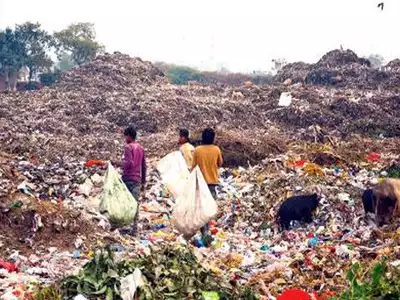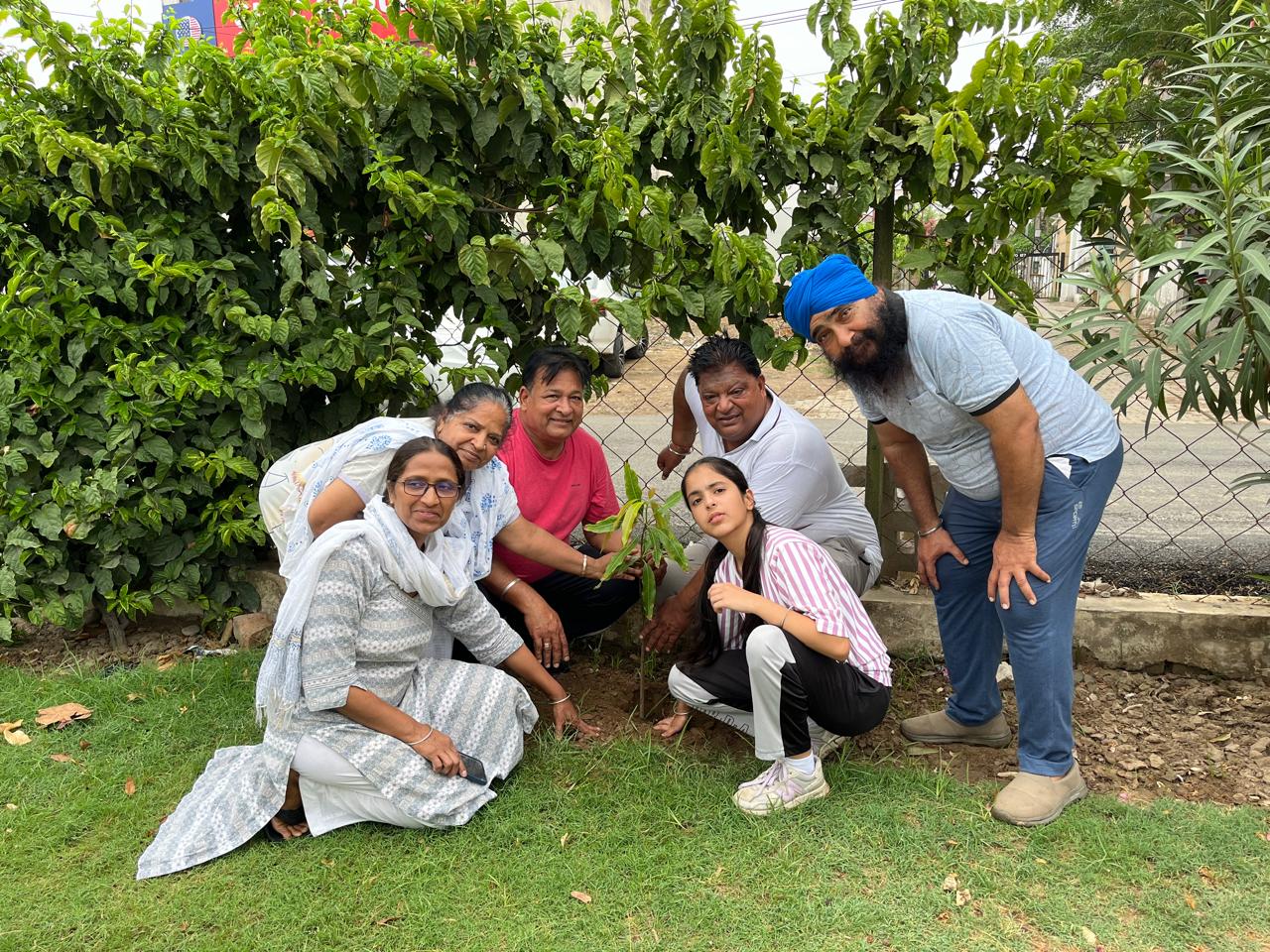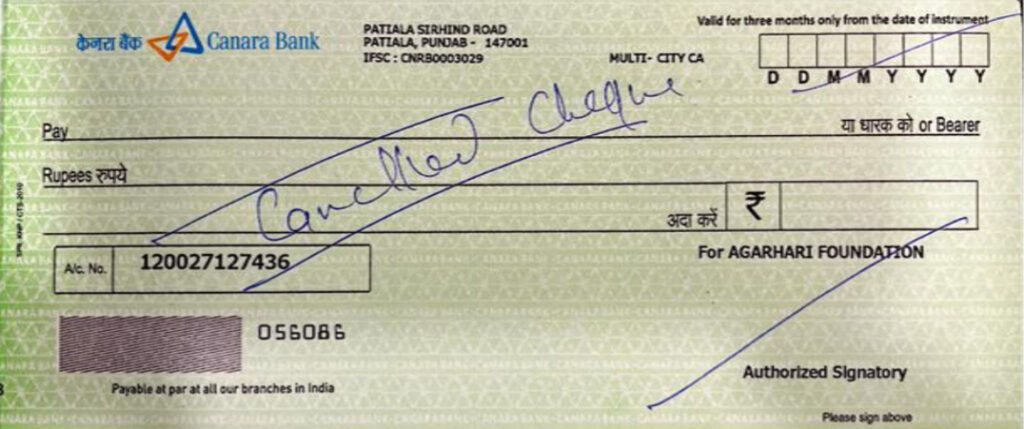Effective waste management is a critical concern, especially in developing countries experiencing rapid urbanization and population growth. Misguided strategies and insufficient ground-level monitoring have led to environmental degradation and public health risks. Addressing these challenges requires a multifaceted approach that includes increasing public awareness, enforcing regulations, leveraging technology, and fostering community involvement. Challenges in Waste Management Developing nations often face obstacles such as inadequate infrastructure, limited financial resources, and low public awareness regarding proper waste disposal. These challenges contribute to environmental degradation, public health issues, and economic losses. The Role of Community Involvement Community engagement is pivotal in enhancing waste management practices. Active participation from residents can lead to more effective waste reduction, recycling, and disposal initiatives. Neighbourhood recycling programs, community cleanup events, and educational workshops exemplify how collective efforts can foster a culture of environmental responsibility. Strategies to Enhance Community Participation Education and Awareness: Informing residents about the environmental and health impacts of improper waste disposal can motivate proactive behaviour. Educational campaigns can highlight the benefits of recycling and proper waste segregation. Incentivization: Implementing reward systems for recycling and waste reduction can encourage community involvement. For example, offering discounts on utility bills or providing community recognition can motivate residents to participate actively. Collaboration: Partnerships between local governments, NGOs, and community groups can pool resources and expertise for more effective waste management solutions. Collaborative efforts can lead to the development of comprehensive waste management plans that address local needs. Case Studies of Successful Community Engagement in India Indore’s Waste Management Transformation: Indore has consistently ranked as the cleanest city in India due to its efficient waste management system. The municipal corporation implemented door-to-door waste collection, enforced strict segregation policies, and established composting units. Community participation was encouraged through awareness campaigns and incentivization, leading to a significant reduction in waste sent to landfills. Swachh Bharat Mission (SBM): Launched in 2014, SBM is a nationwide initiative aiming to eliminate open defecation, improve urban and rural sanitation, and promote scientific waste management. The mission emphasizes waste segregation at the source and encourages the use of modern waste management technologies. Community involvement has been a cornerstone of SBM, with citizens actively participating in cleanliness drives and awareness programs. Plastic Waste Management Rules (2018): These regulations introduced Extended Producer Responsibility (EPR), making manufacturers and importers accountable for the end-of-life management of plastic products. The rules also imposed bans on certain single-use plastics and promoted the development of recycling infrastructure. Public awareness campaigns have been integral to the successful implementation of these rules. Waste to Wealth Mission: This initiative focuses on transforming waste into valuable resources through innovative technologies and processes. Collaborations between government bodies and private enterprises have led to the development of customized solutions for waste management challenges, such as the deployment of specialized equipment for drain cleaning in urban areas. Additional Measures to Improve Waste Management Strict Enforcement and Surveillance: Implementing and enforcing stringent waste management regulations can deter improper disposal practices. Increasing surveillance and imposing penalties on violators can promote compliance and accountability. Leveraging Technology: Utilizing technological solutions, such as waste tracking systems and mobile applications for reporting illegal dumping, can enhance monitoring and management efficiency. NGO Involvement: Engaging non-governmental organizations to promote awareness and facilitate community participation can bridge gaps between authorities and residents, fostering trust and cooperation. In conclusion, addressing waste management challenges requires steering misguided strategies towards effective, community-cantered approaches. By increasing public awareness, enforcing regulations, leveraging technology, and fostering collaboration, communities can develop sustainable waste management practices that promote cleanliness and environmental health. Source: The Green Planet Solutions Earth5R Home | Principal Scientific Adviser
Urban Problems: City Managers Need to Buckle Up to Ensure Waste Management
Urban Problems: City Managers Need to Buckle Up to Ensure Waste Management Tick All Places for Primary and Secondary Waste Points: A comprehensive checklist for waste management points should be prepared by subject matter experts. This will instill a sense of responsibility towards public hygiene. Citizens must also remain vigilant and take ownership of maintaining their surroundings. Plan Waste Lifting to Every Last Detail: To uphold public hygiene and safety, waste collection points should be organized with meticulous planning. Every detail must be examined closely. The administration should establish clear regulatory “Dos & Don’ts” for waste collection, ensuring compliance by both citizens and waste management staff. Ban Proprietors Found at Fault for Waste Littering: Authorities must enforce strict inspections to identify instances of improper waste disposal. Designated officials should conduct regular checks, imposing hefty fines on violators and permanently banning proprietors found guilty of repeated offenses. However, authorities should also promote permanent alternatives to address systemic waste issues. Hire Experts for Inspections: The administration should employ trained waste management personnel to oversee inspections, recommend solutions, and ensure scientific waste disposal. Engaging citizens through technology can further enhance waste management practices. Plans should involve multiple stakeholders, including civil societies, to foster sustainable initiatives. Designated staff must also receive basic first aid training and necessary supplies. Deploy Designated Officials on the Ground: Strict compliance with waste management protocols is essential. Officials must be deployed at secondary waste points and dumping grounds to oversee adherence to regulations. Non-compliance should result in strict penalties, including the cancellation of operational licenses. Get an Insight into the Logistics: Before involving stakeholders, all risks should be communicated transparently to the public. Making cities safe and sustainable requires collaboration among four key groups: Government Private Sector Civil Society Communities Enforce Safety Regulations Strictly: Hygiene and safety regulations must be strictly enforced through regular inspections. Well-trained operators, emergency response teams, and effective waste control measures should be in place at all public events. Public awareness campaigns and immediate actions against violations of Solid Waste Management (SWM) Rules 2016 will contribute to cleaner urban spaces. Ditch the Lackadaisical Approach: Recurring heaps of garbage at fairs and public gatherings are often due to administrative negligence. Authorities must establish monitoring teams to oversee hygiene and safety measures at events. Event organizers should be required to display waste management plans at venues to ensure visitors are aware of dustbin and waste container placements. Ensure Proper Licenses Are Issued: To enhance hygiene and safety at public events, stronger regulations and routine inspections should be implemented. Clear protocols for waste collection bins, vendor licensing, and mandatory hygiene training for operators must be established. Surveillance technology and emergency alert systems can improve monitoring. Public awareness campaigns should reinforce hygiene standards. Increase Accountability: Officials must be held accountable for sanitation failures under the Urban Local Bodies (ULB) framework. Strict control measures are necessary to manage urban waste effectively. Issue Certificates to Civil Societies: Authorities should issue operational certificates to civil societies, private entities, and communities, conducting surprise visits to ensure that trained personnel are actively maintaining hygiene standards. This will help develop a culture of environmental and social responsibility. Improve the Screening Process & Resolve Conflicts Between Stakeholders: Urban governments struggle with service management due to capacity gaps and financial constraints. Effective stakeholder engagement is crucial: Civil society must focus on knowledge creation and advocacy. The private sector should accelerate innovation and inform policy. Communities must accept their responsibilities and increase autonomy. Stakeholders should continuously update their knowledge and approach to improve urban waste management systems. Regulatory Framework Needed: A formal regulatory framework aligned with SWM Rules 2016 is critical. Urban planners should anticipate future challenges, including resource scarcity and climate variability. They must leverage emerging technologies to create sustainable waste management systems. Rigorous Inspections Are Required: The urban administration must enforce strict licensing policies, conduct regular safety audits, and mandate structural certifications for fairs and public events. Adequate fire safety, controlled crowd management, and emergency response teams should be mandatory. Amusement rides and public attractions must undergo rigorous safety inspections, with accountability measures for negligence. Strengthen Urban Services: Standard Operating Procedures (SOPs) for public hygiene and safety must be published in newspapers, radio, and TV to ensure public compliance. Urban services should be designed to withstand shocks and stresses, maintaining network integrity. Build Capacities and Conduct Regular Checks: Urban sustainability depends on shared responsibility. While social media fosters discussion, it must be leveraged to build collective vision and action. Devolve Functions Responsibilities and accountabilities must be clearly defined among stakeholders. Transitioning from centralized city-wide waste grids to modular, locally managed systems can reduce peak loads and enhance resilience. Establishing strong local institutions and multi-stakeholder platforms is necessary to facilitate this shift. Enable Symmetry of Information Sharing Efficient data collection and transparent information sharing are vital for informed decision-making. Granular data analysis across various scales will enhance waste management policies. Multi-channel communication strategies should be employed to improve accessibility and stakeholder engagement. By implementing these measures, city managers can foster cleaner, healthier, and more sustainable urban environments, ensuring that waste management is handled with the urgency and efficiency it demands.
“Balance Economics with Swachhta, Strive to Strike a Balance”
“Balance Economics with Swachhta, Strive to Strike a Balance” On March 8, 2025, International Women’s Day and School Children Scholarship Facilitation Day was celebrated at Elementary School, Model Town, Patiala. The event, organized in collaboration with the Democratic Teachers Front, served as a platform to inspire young minds while promoting a cleaner and greener environment. During the program, JK Jindal, CEO cum Director of Agarhari Foundation, addressed the gathering and honored bright students for their achievements. Spot competitions were also held to assess the intellectual capabilities of the children, encouraging their academic growth and inspiring future success. The event highlighted the importance of education and empowerment, fostering a brighter future for young minds. In addition to celebrating academic excellence, the event emphasized the critical need for waste management and Swachhta (cleanliness). JK Jindal highlighted that balancing economic progress with environmental responsibility is vital for sustainable growth. Cities often face challenges where rapid development inadvertently leads to increased waste generation. He stressed the importance of uniting efforts to combat this growing concern without hindering urban development. Ensure public interest is to watched and strive to strike a balance. Adopting a flexible yet strategic approach can help maintain cleanliness without restricting economic expansion. Consulting experts, implementing advanced waste management systems, and encouraging community participation are essential steps in this direction. Simple practices like segregating waste at the source, promoting recycling, and involving local communities in cleanliness drives can significantly improve urban hygiene standards. The event concluded with a call to action for students, teachers, and the public to actively contribute to maintaining clean surroundings. By balancing economic progress with environmental care, we can create sustainable cities where growth and cleanliness go hand in hand. The Agarhari Foundation continues to advocate for innovative approaches that empower communities to build a healthier and more prosperous future. Ensure public interest is to watched and strive to strike a balance. Need more deliberation — Swachh Bharat dream is fading day by day without the participation of our citizens. The issue needs to be deliberated at an appropriate level. Adopting a flexible yet strategic approach can help maintain cleanliness without restricting economic expansion. Consulting experts, implementing advanced waste management systems, and encouraging community participation are essential steps in this direction. Simple practices like segregating waste at the source, promoting recycling, and involving local communities in cleanliness drives can significantly improve urban hygiene standards. The event concluded with a call to action for students, teachers, and the public to actively contribute to maintaining clean surroundings. By balancing economic progress with environmental care, we can create sustainable cities where growth and cleanliness go hand in hand. The Agarhari Foundation continues to advocate for innovative approaches that empower communities to build a healthier and more prosperous future.
A Message from Our CEO, Mr. J.K. Jindal
A Message from Our CEO, Mr. J.K. Jindal Agarhari Foundation — Holistically Advancing Healthcare, Education, and Environmental Sustainability At Agarhari Foundation, we believe that environmental sustainability is deeply connected to the well-being of communities. We are committed to holistic development by integrating healthcare, education, and environmental stewardship. Through grassroots initiatives, we are ensuring a cleaner, healthier, and more sustainable future for all. Your invaluable support has empowered us to expand our efforts, foster innovation, and maximize the impact of key steps toward sustainable development and climate action. Thank you for standing with us on this journey. Together, we are turning waste into opportunity. J.K. Jindal Chief Executive Agarhari Foundation
Wastewater cut the Lifeline of Yamuna in Delhi: A River in Crisis, A Lifeline Lost
Wastewater cut the Lifeline of Yamuna in Delhi: A River in Crisis, A Lifeline Lost The Yamuna River, with significant holy river meets at Sangam at Prayagraj Maha Kumbh once considered the lifeline of Delhi, has now been declared almost non-existent in its ability to sustain life. A recent parliamentary report has painted a grim picture of the river’s condition, highlighting the alarming levels of pollution that have rendered it incapable of supporting aquatic ecosystems or providing safe drinking water. Out of 33 monitored sites along the river, 23—including six within the national capital NCT—failed to meet even the basic water quality standards. The Vanishing Lifeline: The first sight of the Yamuna in Delhi is enough to shock anyone. What was once a flowing river of life now appearing as a black, stagnant mass of filth, emitting an unbearable stench. The 40-km stretch of the Yamuna passing through Delhi, from Palla at the Haryana border to Asgarpur in Uttar Pradesh, has become an ecological dead zone. Dissolved oxygen (DO) levels, a key indicator of a water body’s ability to sustain life, are nearly absent in this stretch, signifying that aquatic flora and fauna can no longer thrive. Despite multiple sewage treatment plants (STPs) being constructed and upgraded in both Delhi and Uttar Pradesh, the river continues to deteriorate. The primary culprits remain unchecked industrial discharge, untreated sewage, and rampant encroachments along the riverbanks. Reasons Behind the Crisis Unregulated Sewage and Industrial Effluents: Delhi alone generates thousands of millions of liters of sewage daily, much of which flows untreated into the Yamuna. Industrial units also discharge toxic chemicals into the river, adding to the pollution load. Lack of Effective Water Management The Upper Yamuna River Cleaning Project has failed to yield tangible results due to poor coordination among state governments and implementing agencies. The absence of stringent monitoring and enforcement mechanisms has allowed pollution to persist. Reduced Natural Flow Excessive water extraction for irrigation, industrial use, and drinking water supply has left the Yamuna with little natural flow to dilute pollutants. Barrages and dams upstream have further reduced the river’s self-cleaning capacity. Encroachments and Dumping Illegal settlements, sand mining, and direct dumping of solid waste into the river have choked its course, leaving it stagnant and unfit for natural purification. The Drinking Water Crisis: The impact of the Yamuna’s deterioration extends beyond aquatic life—it directly affects millions who rely on it for drinking water. Despite treatment, pollutants such as heavy metals, bacteria, and toxins make their way into household water supplies, posing severe health risks. A Call for Urgent Action: The parliamentary standing committee has emphasized the need for a coordinated multi-state effort to combat the crisis. Some key recommendations include: Strict enforcement of pollution control norms for industries and municipal bodies. Upgrading and expanding sewage treatment infrastructure to handle the growing urban population. Ensuring environmental flow by regulating water extraction and allowing natural self-cleansing mechanisms to function. Public participation and awareness to prevent further degradation. Without immediate intervention, the Yamuna risks becoming an irreversibly lost water resource for Delhi. Reviving the river is not just an environmental necessity but a matter of survival for the city and its people.
Rethink the Approach on Swachh Bharat: Need Enthusiastic City Managers
The Swachh Bharat Mission, launched with the vision of achieving a clean and hygienic India, has witnessed commendable progress. However, as cities expand and waste management challenges grow, it’s crucial to rethink our approach. While citizen participation remains vital, the role of city managers demands stricter and more proactive intervention to sustain cleanliness efforts. The Current Scenario Despite years of awareness campaigns and sanitation drives, several urban areas still struggle with waste mismanagement, littered streets, and clogged drainage systems. This indicates a pressing need for city managers to adopt firmer strategies that ensure sustainable outcomes. Environmental Concerns The environment threat is increasing day by day. We are axing trees in the name of development and littering garbage in tonnages without thinking about the consequences of climate change. Such actions are accelerating environmental degradation and posing serious risks to public health and ecosystems. Steps for Effective Action Strict Waste Management Policies: Implementing robust rules for waste segregation, disposal, and recycling is essential. Heavy penalties for non-compliance can act as deterrents while promoting responsible behavior. Enhanced Monitoring Systems: Smart city technologies like CCTV surveillance, GIS mapping, and data analytics can help track sanitation hotspots and identify recurring issues in specific localities. Empowered Sanitation Workforce: Equipping sanitation staff with modern tools, protective gear, and training can enhance their efficiency and ensure cleaner surroundings. Collaborative Public Engagement: While city managers must lead the way, engaging schools, RWAs (Resident Welfare Associations), and NGOs in cleanliness drives can amplify the impact. Accountability Framework: Establishing clear accountability for municipal staff, contractors, and waste collection agencies will ensure consistent efforts towards maintaining hygiene. Balanced Approach for Sustainable Solutions: A balanced approach is needed to unite past with future. Engaging experts before taking decisions and gathering feedback from all stakeholders will ensure that every voice is heard and decisions are made effectively. The Way Forward City managers must embrace a balanced approach that integrates strong regulations with community involvement. Only through strict enforcement and citizen participation can the Swachh Bharat Mission achieve its true objective — a cleaner, healthier, and more sustainable India. The time for stern action is now, ensuring that no compromise is made in the journey towards a cleaner nation.
Balance Economics with Swachhta, Strive to Strike a Balance
On March 8, 2025, International Women’s Day and School Children Scholarship Facilitation Day was celebrated at Elementary School, Model Town, Patiala. The event, organized in collaboration with the Democratic Teachers Front, served as a platform to inspire young minds while promoting a cleaner and greener environment. During the program, JK Jindal, CEO cum Director of Agarhari Foundation, addressed the gathering and honored bright students for their achievements. Spot competitions were also held to assess the intellectual capabilities of the children, encouraging their academic growth and inspiring future success. The event highlighted the importance of education and empowerment, fostering a brighter future for young minds. In addition to celebrating academic excellence, the event emphasized the critical need for waste management and Swachhta (cleanliness). JK Jindal highlighted that balancing economic progress with environmental responsibility is vital for sustainable growth. Cities often face challenges where rapid development inadvertently leads to increased waste generation. He stressed the importance of uniting efforts to combat this growing concern without hindering urban development. Ensure public interest is to watched and strive to strike a balance. Adopting a flexible yet strategic approach can help maintain cleanliness without restricting economic expansion. Consulting experts, implementing advanced waste management systems, and encouraging community participation are essential steps in this direction. Simple practices like segregating waste at the source, promoting recycling, and involving local communities in cleanliness drives can significantly improve urban hygiene standards. The event concluded with a call to action for students, teachers, and the public to actively contribute to maintaining clean surroundings. By balancing economic progress with environmental care, we can create sustainable cities where growth and cleanliness go hand in hand. The Agarhari Foundation continues to advocate for innovative approaches that empower communities to build a healthier and more prosperous future. Ensure public interest is to watched and strive to strike a balance. Need more deliberation Swachh Bharat dream is fading day by day without the participation of our citizens. The issue needs to be deliberated at an appropriate level. Adopting a flexible yet strategic approach can help maintain cleanliness without restricting economic expansion. Consulting experts, implementing advanced waste management systems, and encouraging community participation are essential steps in this direction. Simple practices like segregating waste at the source, promoting recycling, and involving local communities in cleanliness drives can significantly improve urban hygiene standards. The event concluded with a call to action for students, teachers, and the public to actively contribute to maintaining clean surroundings. By balancing economic progress with environmental care, we can create sustainable cities where growth and cleanliness go hand in hand. The Agarhari Foundation continues to advocate for innovative approaches that empower.









